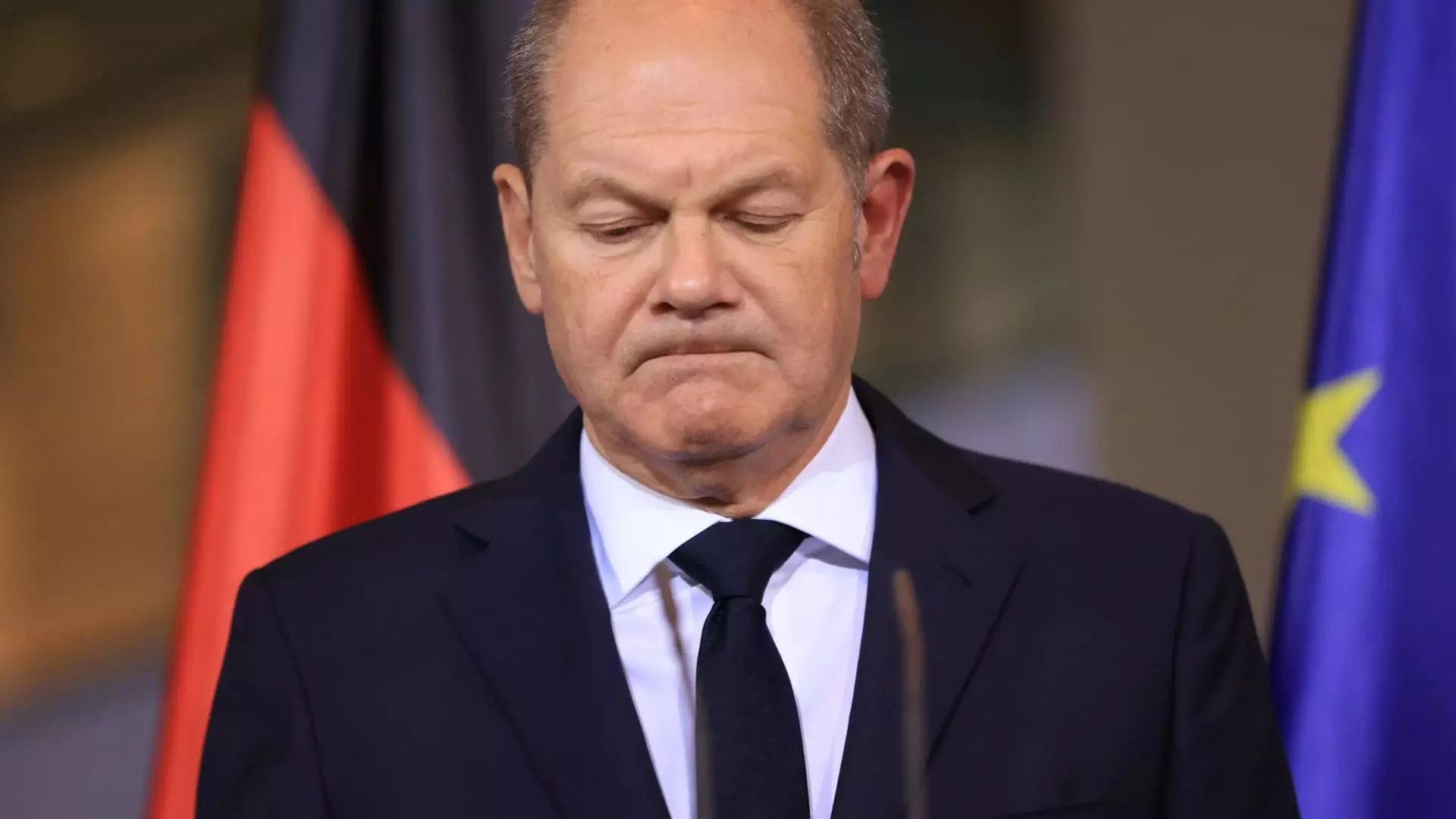In a rapidly evolving geopolitical and economic environment, significant changes in global leadership can have far-reaching effects. Following Donald Trump’s election as U.S. President, Germany found itself standing at the crossroads of economic uncertainty. Tensions surrounding trade relations and economic policy are brewing, largely due to Trump’s previous rhetoric and proposed policies which could considerably impact the German economy.
Germany’s economic landscape has been precarious, with recent indicators suggesting a nation teetering on the edge of recession. In the third quarter, the country’s GDP saw a modest growth of 0.2%, narrowly escaping a technical recession following a contraction of 0.3% in the preceding quarter. Despite these signs of life, a cloud of uncertainty looms over the economy. The German economy ministry has already escalated its outlook for 2023, revising expectations to a contraction instead of growth. This fragile economic state is compounded by key performance indicators, including the composite Purchasing Managers’ Index (PMI), which, while slightly improving, remains in contraction territory according to S&P Global and Hamburg Commercial Bank data.
Economic experts have voiced their concerns over the implications of Trump’s presidency on Germany. Moritz Schularick, the president of the Kiel Institute for the World Economy, articulated the potential severity of the situation, suggesting that Germany may be facing one of its most challenging economic periods in recent history. With a trade-dependent economy, Trump’s potential tariffs on imports could significantly impact Germany, particularly given its reliance on exports. As the U.S. has now regained its status as Germany’s second-largest trading partner, overtaking China in the first half of 2023, the stakes are higher than ever.
Germany’s trade relationship with the U.S. is significant, with nearly 10% of its exports directed towards the American market in value terms. Any imposition of tariffs by the U.S. could unravel this delicate balance, potentially leading to severe repercussions for German businesses. The ifo economic institute did not shy away from forecasting deep losses, estimating that Germany could incur an economic backlash amounting to EUR 33 billion, with exports to the U.S. anticipated to decrease by roughly 15%.
Two industry sectors particularly exposed to potential tariffs are the automotive and chemical industries, both of which have historically been bedrocks of the German economy. Given the prominence of these sectors in both employment and export figures, any disruption to their operational capabilities could reverberate throughout the economy. Lisandra Flach from the ifo Center for International Economics highlighted the urgent need for Germany and the European Union to brace themselves and possibly pivot towards internal adjustments such as deeper market integration and credible retaliation strategies against the U.S.
These economic strategies are not merely defensive; they represent a proactive approach to mitigating the risks posed by an adversarial trade environment. Flach’s call for a reevaluation of Germany’s positioning within the global economic landscape reflects a growing sentiment among German policymakers to reassess their engagement strategies in light of shifting U.S. foreign policy under Trump.
Compounding the economic challenges, Germany is currently experiencing political upheaval. The recent dismissal of Finance Minister Christian Lindner by Chancellor Olaf Scholz highlights a ruling coalition that is facing internal strife. The political landscape is further complicated by the necessity to maintain strong diplomatic ties with the U.S., as underscored by both Scholz and Lindner’s congratulations to Trump on his election.
In a precarious balance of domestic and international priorities, the German government finds itself needing to engage with Trump while simultaneously preparing for potential adverse impacts on the economy. The need for strategic economic diplomacy is apparent, as the stakes become increasingly high for not only Germany’s economy but also the broader European Union as it grapples with the potential ripple effects of America’s trade policies.
As Trump takes office, the forecast for Germany’s economy becomes shrouded in greater uncertainty. Policymakers and economic leaders must navigate an intricate landscape where domestic challenges intersect with the need to respond to international pressures. Essential measures will involve not only bolstering the resilience of key economic sectors but also fostering a robust dialogue with the U.S. to dissuade escalation into trade conflicts.
The impact of Trump’s presidency on Germany could redefine economic relations, prompting both introspection and proactive adaptations within one of the world’s leading economies. Germany stands at a pivotal moment—a juncture that may determine the nature of its economic engagement on the global stage in the years to come.


Leave a Reply